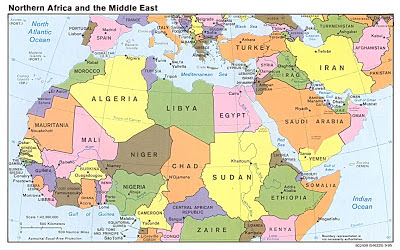Al Arabiya news
written by Staff and other agencies
Tuesday June 4, 2013
Apparently unaware they were being filmed on live TV, Egyptian politicians meeting with Egypt’s president on Monday proposed to sabotage Ethiopia’s plans to build a massive dam on the Nile River upstream.
Some politicians suggested backing rebels to carry out sabotage. But Egyptian President Mohammed Mursi did not directly react to the suggestions, but said in concluding remarks that Egypt respects Ethiopia and its people and will not engage in any aggressive acts against the East African nation.
Mursi called the meeting to review the impact of Ethiopia’s $4.2 billion hydroelectric dam, which would be Africa’s largest. Egypt in the past has threatened to go to war over its “historic rights” to Nile River water.
Meanwhile, an aide to Mursi has apologized after she failed to inform politicians holding talks with the president that they were live on air.
“Due to the importance of the topic it was decided at the last minute to air the meeting live. I forgot to inform the participants about the changes,” presidential aide for political affairs Pakinam el-Sharkawi said.
“I apologise for any embarrassment caused to the political leaders,” she said on Twitter.
Maintain contact
Mursi’s office later said he had directed his foreign and irrigation ministers to maintain contact with the Ethiopian government to obtain more information on the dam and its likely impact on Egypt’s share of the Nile water.
His office’s statement included a note, saying: “Egypt will never surrender its right to Nile water and all options (to safeguard it) are being considered.”
According to The Associated Press, in the meeting, Younis Makhyoun, leader of an ultraconservative Islamist party, said Egypt should back rebels in Ethiopia or, as a last resort, destroy the dam. He said Egypt made a “strategic error” when it did not object to the dam’s construction.
Makhyoun said Ethiopia is “fragile” because of rebel movements inside the country. “We can communicate with them and use them as a bargaining chip against the Ethiopian government,” he said.
“If all this fails, then there is no choice left for Egypt but to play the final card, which is using the intelligence service to destroy the dam,” said Makhyoun, whose Nour party won about 25 percent of parliament’s seats in elections in late 2011 and early 2012.
Another politician, liberal Ayman Nour, proposed spreading rumors about Egypt obtaining refueling aircraft to create the impression that it plans an airstrike to destroy the dam.
“This could yield results on the diplomatic track,” Nour said.
Abu al-Ila Madi, leader of the pro-Mursi Islamist Wasat party, suggested that a rumor that Egypt planned to destroy the dam could scare the Ethiopians into cooperating with Egypt on the project.
Magdy Hussein, another Islamist politician, warned that talk of military action against Ethiopia is “very dangerous” and will only turn Ethiopians into enemies. He suggested soft diplomacy in dealing with the crisis, including organizing a film festival in Ethiopia and dispatching researchers and translation missions.
Ethiopia last week started diverting the flow of the Nile to make way for its hydroelectric plant dubbed the Grand Ethiopian Renaissance Dam.
The first phase of construction is expected to be complete in three years, with a capacity of 700 megawatts. Once complete the dam will have a capacity of 6,000 megawatts.
Egypt believes its “historic rights” to the Nile are guaranteed by two treaties from 1929 and 1959 which allow it 87 percent of the Nile’s flow and give it veto power over upstream projects.
But a new deal was signed in 2010 by other Nile Basin countries, including Ethiopia, allowing them to work on river projects without Cairo’s prior agreement.



































No comments:
Post a Comment